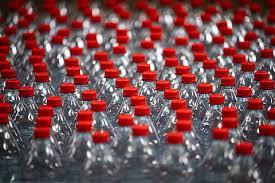A new study released by France’s Food Safety Agency (ANSES), has found that drinks including water, soda, beer, and wine sold in glass bottles contain more microplastics than those in plastic bottles.
The study released by ANSES was published online in the ‘Journal of Food Composition and Analysis’. Microplastics are small plastic fragments, typically less than five mm in size, that originate from the breakdown of larger plastic items or are manufactured as tiny particles.
They are a significant form of plastic pollution, impacting the environment and potentially human health.
Research Director at the ANSES, Guillaume Duflos disclosed that the team sought to “investigate the quantity of microplastics in different types of drinks sold in France and examine the impact different containers can have.”
They however found an average of around 100 microplastic particles per litre in glass bottles of soft drinks, lemonade, iced tea, and beer. That was five to 50 times higher than the rate detected in plastic bottles or metal cans, reported the ‘Newsmaxhealth’.
“We expected the opposite result,” PhD student Iseline Chaib, who conducted the research stated.
She added: “We then noticed that in the glass, the particles emerging from the samples were the same shape, colour and polymer composition — so therefore the same plastic — as the paint on the outside of the caps that seal the glass bottles.”















